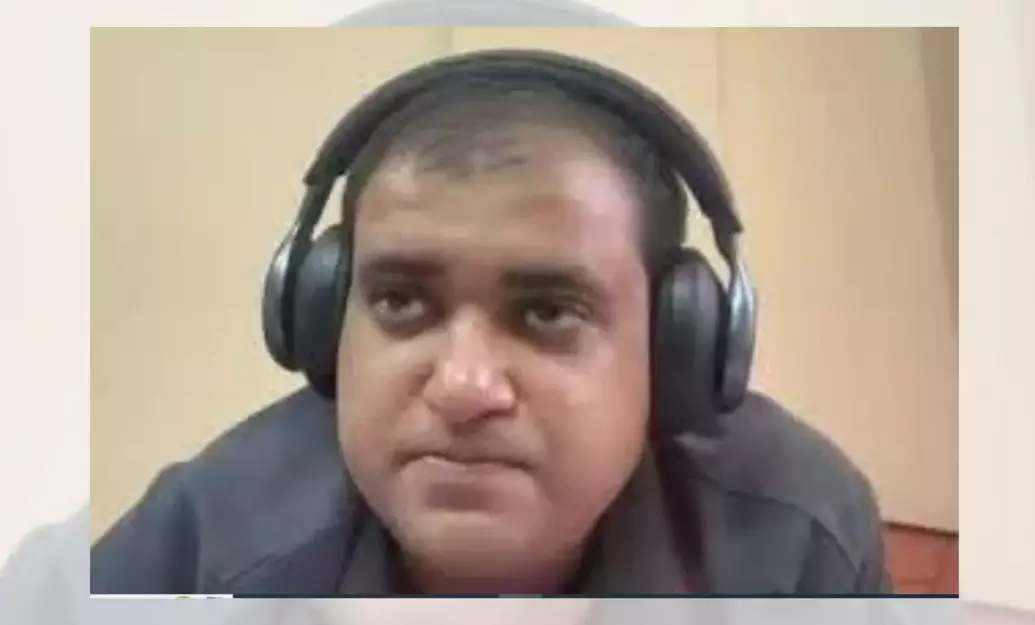
An FIR has been filed against four individuals following the tragic suicide of 34-year-old deputy general manager Atul Subhash, who reportedly took his life due to allegations of harassment, extortion, and corruption. The FIR, based on a complaint from Atul’s brother Bikas Kumar, was registered at Marathahalli police station and accuses his estranged wife, Nikita Singhania, along with her family members—mother-in-law Nisha Singhania, brother Anurag Singhania, and uncle Sushil Singhania—of driving Atul to suicide. Atul, who had been living in Bengaluru, married Nikita in 2019 and the couple had a child together.
However, after their separation, Nikita filed a divorce case against Atul and accused him of several charges, including harassment and dowry demands. The FIR claims that the accused demanded Rs 3 crore for settling the case and Rs 30 lakh for allowing Atul to visit his four-year-old son. According to Atul’s family, the harassment led to severe mental and physical distress, ultimately causing his suicide.

Bikas Kumar, in his complaint, described the numerous legal and emotional challenges his brother faced. Atul had been entangled in a series of cases filed by Nikita’s family, and he was allegedly pushed to the brink due to false charges. Speaking to ANI, Bikas expressed his disbelief and anger, stating that the legal system was biased, particularly in divorce cases, and that men were often subjected to unfair treatment.
He revealed that Atul’s suicide note, found in his residence, indicated deep frustration with the judicial system, and his brother had written, "If I win from the system, devote my mortal remains in Ganga, otherwise in a gutter outside the court." Atul’s close friend, Jackson, spoke to the media, shedding light on the immense stress Atul was under. Jackson explained that Atul was forced to deal with multiple lawsuits, including false charges related to domestic violence, dowry harassment, and even murder, all while struggling to make ends meet.
Jackson emphasized that Atul had faced enormous stress, and his decision to end his life seemed to be rooted in the harassment he endured, rather than a deep depression. “His wife filed nine cases against him, and this constant legal battle took a toll on him,” Jackson said, noting that despite Atul’s care for his wife and child during the pandemic—when she was infected with COVID-19—she eventually left him, further exacerbating his mental state. Jackson also mentioned that Atul had been ordered to pay Rs 40,000 monthly in child support for his young son, a demand that Atul had found unreasonable and difficult to manage, especially considering his financial struggles.
The police statement revealed that Atul Subhash was a resident of Uttar Pradesh, living in Bengaluru, and was found dead in his flat at Manjunatha Layout in Delfinium Residency. Authorities reported that when they arrived at the scene, the flat was locked from the inside, and after breaking the lock, they discovered Atul hanging from a ceiling fan. Atul’s suicide note, spanning 24 pages, contained accusations not only against his wife and her family but also against a family court judge in Jaunpur, Uttar Pradesh, whom he accused of not fairly hearing his case and accepting bribes.
The note also included a video in which Atul described the harassment he faced and stated that his family should not immerse his ashes until justice was served. Atul’s message for his son, whom he claimed had been kept away from him by his estranged wife, was equally poignant—he called for his parents to be given custody of his child. The suicide note and video were sent to a WhatsApp group of an NGO with which Atul had been connected.
The message further revealed that his wife’s family had filed multiple cases, including charges of murder, sexual misconduct, and domestic violence, all of which added to Atul’s immense distress. The note repeated the phrase "Justice is Due" on every page, highlighting Atul's desperate call for accountability. Atul’s father, Pawan Kumar, spoke tearfully about his son’s struggles, revealing that Atul had often shared his frustrations with the legal system.
Pawan Kumar explained that Atul had to travel repeatedly from Bengaluru to Jaunpur, Uttar Pradesh, for hearings, a situation that caused considerable stress. He described how Atul had confided in him that the mediation court did not function according to the law, and how he was subjected to constant legal harassment by his wife and her family. Pawan Kumar emphasized that his son had never shown signs of deep depression, but his frustration with the system had taken its toll.
| A 34-year-old deputy general manager of a private firm in Karnataka's Bengaluru, Atul Subhash died by suicide on Monday, leaving behind a 24-page suicide note accusing his wife, her family members, and a judge of "explicit instigation for suicide, harassment, extortion,...
In his statement, Pawan Kumar said, “Atul told us about the mediation court not functioning according to the law, and he had to travel to Jaunpur at least 40 times. She kept framing charges against him, and it must have frustrated him, but he never let us feel it.” The grief-stricken father also expressed his belief that Atul’s allegations against his wife were entirely true.
The police investigation into the case is ongoing, with authorities continuing to look into the role of the judge and court officers mentioned in Atul’s suicide note. The family has demanded a thorough investigation and justice for Atul, and they are calling for accountability from those involved in his mental and emotional torment. Earlier, Atul’s younger brother, Bikas Modi, spoke to the media, reiterating that his brother had been battling multiple legal cases, including demands for an exorbitant sum to settle the disputes.
Bikas Modi emphasized the systemic flaws in the legal system, particularly for men caught in divorce and custody battles. "The laws are made for women, and many women take advantage of them in divorce cases,” he said. “My brother was constantly harassed and was fighting against a biased system.
” The tragic death of Atul Subhash has drawn attention to the pressures faced by individuals in contentious divorce proceedings, particularly those who feel the legal system is biased. This case has sparked conversations about the need for reform in family law and the importance of ensuring fairness in legal proceedings. As the investigation continues, Atul’s family hopes for justice and a proper inquiry into the circumstances surrounding his death.
The case has also raised awareness about the mental health toll that prolonged legal battles and harassment can take on individuals, especially those who feel that the system is not supporting them. The tragedy has prompted calls for a re-evaluation of legal frameworks in family disputes and the need for a more balanced approach that protects the rights of both men and women in the judicial process..















